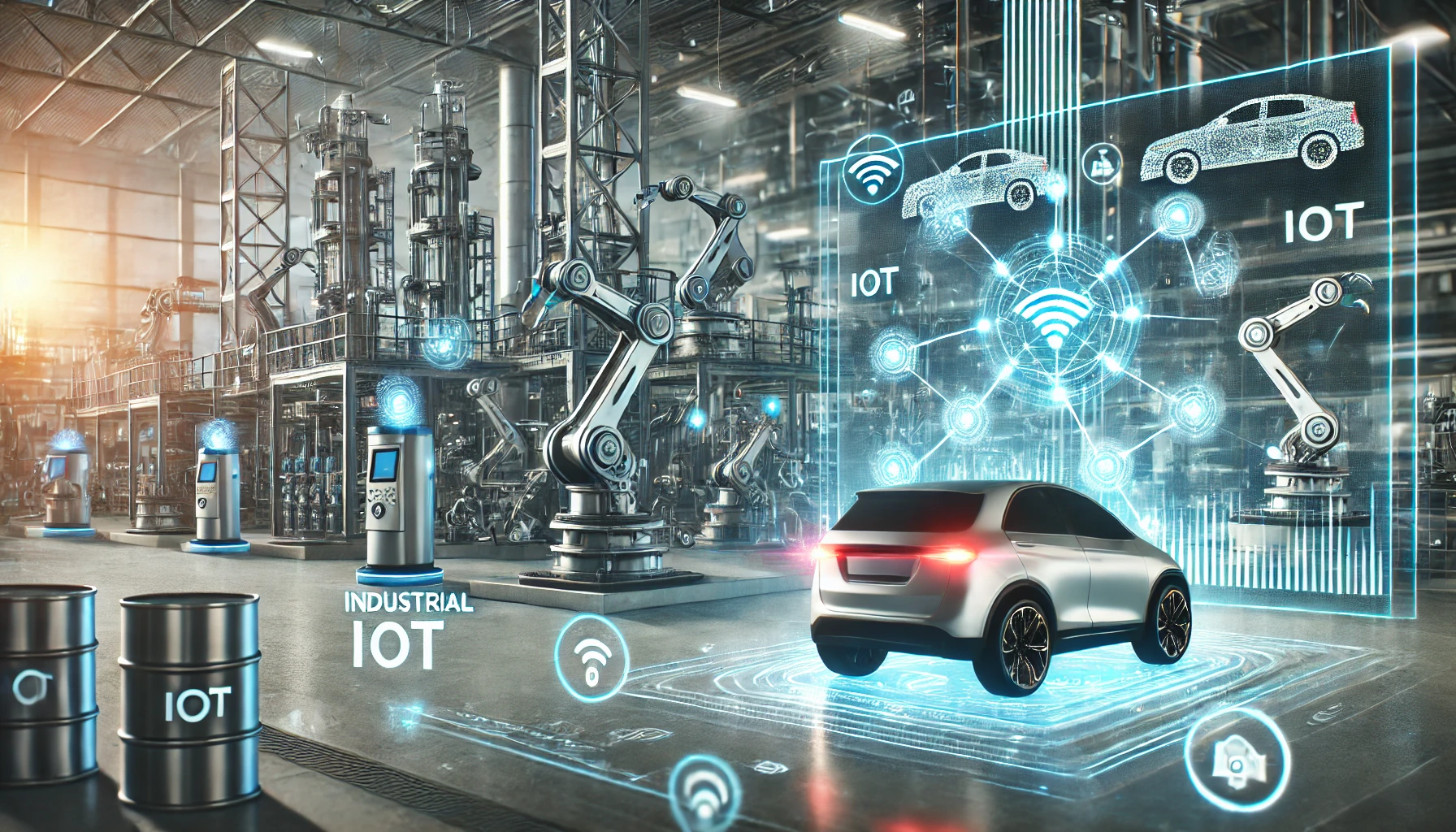Blog on RFID Technology and IoT Solutions
Blog Home

Exploring Industrial IoT and Automotive IoT to Revolutionize Modern Industries
26 December 2024Introduction
The Internet of Things (IoT) is reshaping industries globally, enabling smarter operations, automation, and greater efficiency. Among its specialized applications, Industrial IoT solution providers (IIoT) and Automotive IoT stand out as transformative forces. This blog explores how these IoT solutions revolutionize modern industries, enhance productivity, and foster innovation.
What is Industrial IoT (IIoT)?
Industrial IoT refers to the use of connected devices, sensors, and systems in industrial environments to monitor, analyze, and automate processes. It enhances manufacturing, logistics, and energy industries by integrating real-time data collection and analysis.
Key Benefits of Industrial IoT:
1. Optimized Operations – Real-time monitoring reduces downtime and improves productivity.
2. Predictive Maintenance – Sensors detect issues before failures occur, saving costs.
3. Energy Efficiency – Smart monitoring reduces energy consumption, leading to cost savings.
4. Enhanced Safety – IIoT solutions improve worker safety through automated alerts and monitoring systems.
Applications of Industrial IoT:
• Smart Factories: Real-time machine health monitoring, automated processes, and robotics.
• Logistics: Asset tracking, inventory management, and real-time fleet monitoring.
• Energy Sector: Smart grids, automated energy consumption tracking, and predictive analytics.
What is Automotive IoT?
Automotive IoT refers to IoT applications in vehicles to improve connectivity, safety, and overall performance. From smart cars to advanced fleet management, Automotive IoT is revolutionizing mobility.
Key Benefits of Automotive IoT:
1. Vehicle Safety – Collision avoidance systems and driver monitoring.
2. Connected Vehicles – Real-time diagnostics, remote updates, and infotainment.
3. Fleet Management – GPS-based tracking, fuel optimization, and route planning.
4. Autonomous Mobility – IoT forms the foundation for autonomous vehicles and smart transport systems.
Applications of Automotive IoT:
• Smart Vehicles: Integrating sensors for driver assistance and vehicle diagnostics.
• Telematics: Real-time vehicle tracking and monitoring for fleet optimization.
• Connected Infrastructure: IoT-enabled traffic systems for reduced congestion and improved urban mobility.
How Industrial IoT and Automotive IoT Work Together
• Supply Chain Integration: IIoT optimizes manufacturing, while Automotive IoT ensures efficient delivery.
• Smart Mobility in Manufacturing: Autonomous vehicles streamline logistics within factories.
• Data Sharing: Combined data insights from both IoT systems enhance productivity.
Conclusion
Industrial IoT solution providers and Automotive IoT are paving the way for smarter, more efficient, and connected industries. By leveraging IoT technologies, businesses can drive innovation, reduce costs, and transform the way they operate. The future lies in smarter systems that integrate industries and improve everyday lives.
- Intellistride.com
- Blog
- Exploring Industrial IoT and Automotive IoT to Revolutionize Modern Industries